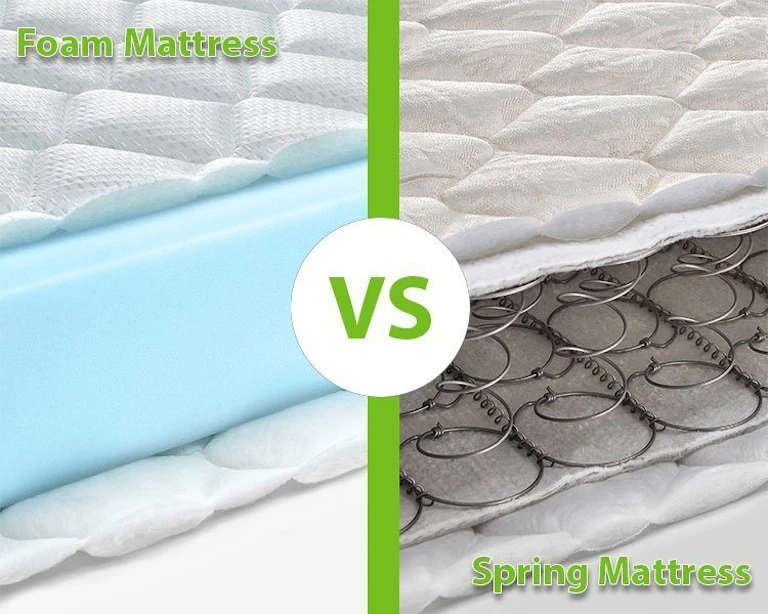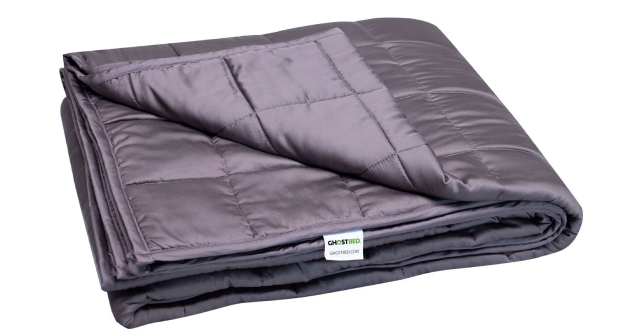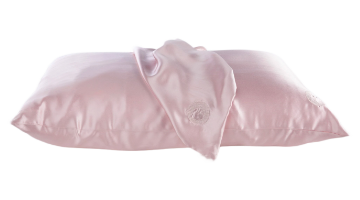Battle of the Beds: Memory Foam vs. Spring Mattresses
Last Updated on April 10, 2025
by Marc Werner, Founder - GhostBed
When it comes to choosing a mattress, you’ve got a lot to consider. What size do you need? Should you go for a traditional spring mattress or a memory foam mattress? And what’s the difference, anyway? Today we’re breaking it all down in a battle royale to see which mattress reigns supreme.
Overview: Memory Foam vs Spring Mattress
As you’re shopping for a mattress, consider your sleeping style, as well as any additional needs and preferences you have. Do you love to sink into your mattress a bit? Memory foam is best known for this, and comes in a wide range of firmness options. Prefer a bouncier feel? Coils are where it’s at. And don’t forget the hybrid mattress option, for the best of both worlds.
 Compare GhostBed Mattresses
Compare GhostBed Mattresses
At the end of the day, we all deserve a comfortable, revitalizing sleep experience. But landing on the right type of mattress for you will depend on your unique sleeping style and individual needs.
Check out this chart for a quick recap and then read on to dive further into each type of mattress.
What is a Spring Mattress?
A spring mattress is made of steel or metal springs (or coils) that are surrounded by layers of other materials for added support and comfort. There are 4 types of coils—continuous, Bonnel, offset and pocket—that offer varying levels of support. Coils that are referred to as “innerspring” are usually connected, while pocket coils are individually wrapped. While spring mattresses are known as the more “traditional” mattress type, today’s modern spring mattresses are worlds apart from the beds your great grandparents slept on.
Some companies also use this term interchangeably with hybrid mattresses, which just means a combination of springs and foam. Hybrid mattresses give you the best of both worlds—a mixture of comforting memory foam and the support of innersprings. For the following pros and cons lists, however, we're just talking about those traditional spring beds, not hybrid options (which we love).
Spring Mattresses: Pros and Cons
If you’ve been sleeping on a foam or hybrid mattress you may be wondering if spring mattresses are any good in comparison. Let’s find out together by exploring some of the benefits below.
Pros

- Spring mattresses have a relatively short break-in period.
- Spring mattresses with continuous coils can be less expensive than other mattress types.
- Spring mattresses provide a cooler sleep than some foam mattresses, as the coils allow for airflow between them.
- Coils offer a bouncy and “responsive” feel, as opposed to the “sinking” and contouring feeling of memory foam.
Cons

- Unlike memory foam mattresses that can be vacuum-sealed and delivered in a compact box, some all-spring mattresses need to be delivered to your home by truck or balanced on top of a vehicle. This also means delivery people will most likely need to enter your home.
- Without the right comfort layers, the pressure of the coils—especially connected or innerspring coils—may exacerbate aches and pains instead of relieving them.
- Spring mattresses tend to have a shorter lifespan and warranty than memory foam mattresses.
- You’ll need to flip a traditional spring mattress regularly to maintain it. This can be an issue for some people as flipping is more physically difficult than simply rotating and may require additional help.
- Spring mattresses tend to transfer motion to your partner when you’re sharing the bed.
How Long Do Spring Mattresses Last?
Spring mattresses typically last 5-10 years. However, this can depend on the overall construction of your mattress and how you care for it. In general, after years of your body putting pressure on the springs, certain areas will begin to sag and bow. High-quality spring mattresses usually have thicker coils, which may last longer.
Additionally, you’ll want to make sure you have a solid mattress foundation to help absorb pressure. We also recommend rotating the mattress regularly (about every 3 months).
So, is a spring mattress better than a foam mattress? While coil mattresses are springy and bouncy, which some people prefer, there are a lot of benefits to a memory foam mattress, as well. We’ll review that in the next section.
What is a Memory Foam Mattress?
A memory foam mattress contains multiple soft layers of polyurethane or polyol foam. The foam layers usually vary in thickness, creating the perfect foundation for a contouring feel and evenly-distributed support. Because of this, most agree that memory foam mattresses are more comfortable to sleep on than a traditional spring mattress.
Fun fact: memory foam was first designed for astronauts in the 1960s! NASA developed the foam to help counteract the pressure the astronauts faced up in the Earth’s atmosphere.
Are Memory Foam Mattresses Good For Hot Sleepers?
When memory foam mattresses first began to gain popularity, their biggest drawback was that they tended to retain heat. Not a great choice for hot sleepers! Fortunately, with the invention of gel memory foam, this is no longer a problem. The gel foam absorbs heat, helping you stay cool all night long.
Marc's Tip
Hot sleepers, listen up! We designed the GhostBed Luxe just for you—and it’s known as the Coolest Bed in the World for a reason. With cooling features from head to toe, you’ll stay comfortable (and cool) all night long.
 Shop GhostBed Luxe
Shop GhostBed Luxe
Memory Foam Mattresses: Pros and Cons
Are foam mattresses any good? If you’ve become accustomed to traditional spring mattresses you may be hesitant to take the plunge into your first memory foam bed, but overall, we’re partial to memory foam and highly recommend it. After all, our engineering team has spent over 20 years developing and designing some of the most exciting advancements in memory foam technology.
Pros

- Memory foam helps distribute your body weight evenly, supporting individual pressure points to relieve aches and pains to encourage a great night’s sleep.
- When infused with gel and other cooling technology, memory foam mattresses can pull heat away from you as you’re sleeping.
- Unlike spring mattresses, memory foam mattresses hold their shape longer without any worries about eventual sagging.
- Although many think of foam as being very soft, the layers in memory foam mattresses can vary in firmness depending on the overall layers to create the perfect sleeping surface that contours and supports your unique body.
- Memory foam mattresses are easy to ship, easy to unpack and arrive at your door in a convenient compact box.
- Memory foam mattresses only need to be rotated every 3 months making for easy maintenance.
Cons

- Some traditional (non-gel) foam may retain heat, depending on the materials used.
- If the foam isn’t high quality and durable, you may need to replace the mattress earlier than expected.
How Long Do Memory Foam Mattresses Last?
A memory foam mattress will last about 8-10 years, and in some instances, even longer. Similar to a spring mattress, the longevity will depend on the quality of the materials and how well you take care of your mattress. We recommend pairing your memory foam mattress with a solid foundation or base and rotating the mattress every few months for longevity and performance.
So, Which One Reigns Supreme - Memory Foam vs. Springs?
Choosing the perfect mattress is subjective, so the answer to this will depend on your individual needs, sleeping style and more. However, if you’re on the fence, why not go with the best of both worlds? For the ultimate in comfort and contouring, a hybrid mattress that blends springy coils and cooling gel memory foam may be just what the (sleep) doctor ordered.
Marc's Tip
Need more help? We’re here for you. I started designing mattresses and pillows after 3 neck surgeries, when I couldn’t find what I needed for comfortable sleep. Compare our mattresses here, or take my short quiz to find your perfect match.
 Take the Quiz
Take the Quiz
Coil vs Foam Mattress FAQ
Our Sleep Experts get a lot of questions about mattresses, and they know a thing or two about pairing people with the ideal mattress for their individual sleeping needs. Here are just a few frequently asked questions. Read the answers and you may find a bit more clarity on whether you should go with a spring mattress or memory foam option.
Which type of mattress is better for couples?
Memory foam excels at isolating and dampening vibration, which means couples are more likely to enjoy a gel memory foam option. If you think you’d prefer the supportive nature of something with springs, select a hybrid bed with individually wrapped coils, as this type of mattress can go toe-to-toe with memory foam mattresses any day when it comes to motion isolation.
Which type should I get if I have hip pain?
Spring mattresses aren’t a great choice for those with hip pain, because the coils can put added pressure on your already achy joints. But if you like the idea of coils, or are just used to them, consider a hybrid mattress. Because our hybrid mattresses feature individual pocketed coils layered with other materials that help you feel super comfy, you will avoid adding insult to injury. The coils in a hybrid mattress give your body support and security as the foam layers comfortably contour your body’s curves to relieve pressure points.
What type of mattresses needs a box spring?
Not sure if your mattress needs a box spring? Traditional innerspring mattresses used to always require a box spring. But these days, they're not as important, thanks to foam, latex and hybrid mattress innovations. Keep in mind, whether you opt for an all-foam, latex or hybrid bed, you'll want to invest in some form of support for your mattress, like a metal foundation or adjustable base.
Conclusion
In the battle of memory foam vs. spring mattresses, we’ve identified a clear winner—at least in our opinion! And the champion is…drumroll please…gel memory foam. But ultimately, your decision will come down to your individual preferences. If you do love the springs, we recommend opting for a hybrid-style mattress that combines the best of both worlds!
No matter which type you land on, you’ll want to look for the following:
- Mattresses made with high-quality, durable materials
- A solid warranty, like GhostBed’s industry-leading 20- to 25-year limited warranty
- Easy pairing with a solid foundation or adjustable base to protect your investment
- A lengthy trial period, like GhostBed’s 101-Night Sleep Trial
We wish you the best of luck in your quest to find the ideal mattress for you. And we hope this information helps you better understand your options! And don’t forget—if you ever have questions, our friendly Support team is here to help you decide which GhostBed mattress is right for you. Contact us today if you have any questions!
Marc has spent the last two decades designing & manufacturing mattresses and other sleep products, drawing on a lifetime of experience working with the material sciences. With several patents to his name, he works closely with the GhostBed team to create products with the perfect balance of comfort & support. Learn More




